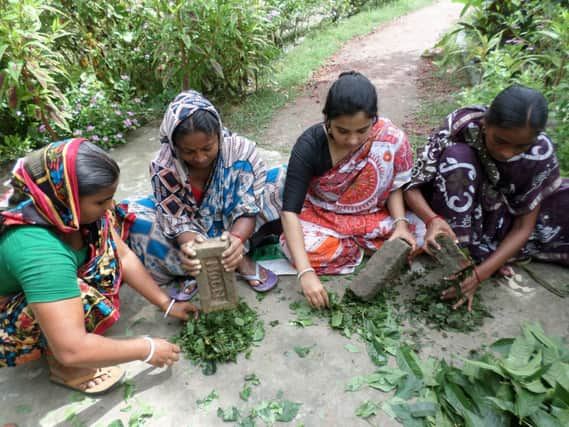It’s a year to rebuild, from the ground up


SOIL is one of the building blocks of life on our planet, providing the basis for food production, storing carbon, sustaining biodiversity.
The continued capacity of soil to function as a vital living ecosystem that sustains plants, animals and humans will be under the spotlight with the 2015 UN International Year of Soils (IYS 2015).
Advertisement
Hide AdAdvertisement
Hide AdThe United Nations Food and Agriculture Organisation (FAO) has been nominated to implement the IYS 2015 in collaboration with governments and the secretariat of the UN Convention to Combat Desertification. The IYS 2015 aims to increase understanding of the importance of soil for food security and essential ecosystem functions.
Given the threats that food systems face, particularly those linked to climate change and soil degradation, CIFAL Scotland and partners in Senegal and Bangladesh are engaged in a project to restore the fine balance of soils in different contexts. In northern Senegal, we are working to reverse desertification due to years of agricultural mismanagement; in southern Bangladesh we are working to tackle the increasing intensity of soil salinity.
In the Khulna and Bagerhat region of Bangladesh over 50 per cent of agricultural land is affected by salinity caused by tidal flooding during the wet season and upward movement of saline ground water during the dry season. With very low organic matter content in the soils, communities struggle to get the yields necessary for their food security and livelihoods.
Our approach is to empower communities at the local level, in order for them to identify the obstacles they face and the solutions that best meet their needs. Recently we conducted a permaculture training led by Pradyut Nayek, considered the top permaculturalist in west Bengali, where leaders from 42 villages learnt new approaches to food growing over saline soil. Raised beds and floating vegetable cultivation, together with a series of natural techniques to improve soil fertility such vermin compost and green manures were added to their repertoire of techniques to enhance their food security.
In the Podor region of Senegal the attempt to increase productivity has led to an extension of monocultures and thus to a significant loss of agro-biodiversity and accelerated soil erosion. The food systems that communities have inherited have failed them, turning productive land into a lunar landscape.
In order to reverse growing desertification, reduce erosion, conserve rainfall runoff and improve lower groundwater recharge we are utilising the traditional vetiver grass system.
In the first quarter of the year communities are gathering tons of manure, increasing nutrients, covering bare soil, fencing the plots and developing their food system plans utilising agro-forestry and permaculture approaches to food growing.
In our Bangladesh and Senegal projects, respectively funded by the Scottish and UK governments, communities are replacing input-intensive agriculture with new food systems, focused on well-being, resilience and sustainability; while paving the way to healthy, diverse and locally produced food in healthy soils.
Advertisement
Hide AdAdvertisement
Hide AdThe Latin word for soil is humus, the same root of the word human. From land to mouth, from soil to community, there is a profound link between the health of the soil and the wholeness of human life. As the world prepares to negotiate the sustainable development goals, we see the International Year of Soil as a catalyst for scaling-up communities’ capacity-building in sustainable soil management so that they can be empowered to design ecosystems-based solutions for new food systems.
• May East is chief executive of CIFAL Scotland, www.cifalscotland.org